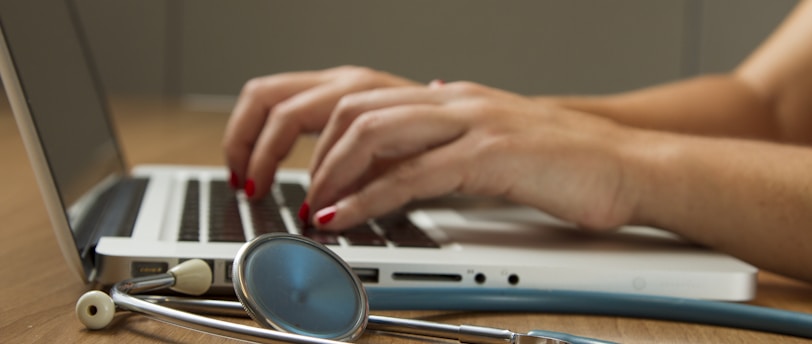Heat Exhaustion: Causes, Symptoms & Treatment
Suffering from heat exhaustion? Learn about symptoms, treatment, prevention.
1/23/20253 min read


Heat Exhaustion: Causes, Symptoms & Treatment
Heat exhaustion is a serious condition that occurs when your body overheats and struggles to cool itself. It is often caused by prolonged exposure to high temperatures, dehydration, and excessive sweating. If untreated, it can escalate to heat stroke, a potentially life-threatening condition requiring immediate medical intervention.
Heat Exhaustion vs. Heat Stroke
Heat exhaustion is less severe than heat stroke, but both require medical attention. If left untreated, heat exhaustion can progress to heat stroke, which can cause permanent organ damage or death.
Key Differences:
- Heat exhaustion: Heavy sweating, dizziness, nausea, and rapid heartbeat.
- Heat stroke: Body temperature above 104°F, confusion, fainting, lack of sweating, and slurred speech (requires immediate emergency care).
- Call 911 immediately if heat stroke symptoms appear.
Common Symptoms of Heat Exhaustion
- Body temperature over 100°F (but below 104°F)
- Dizziness or fainting
- Cool, moist skin with goosebumps
- Heavy sweating
- Nausea and vomiting
- Headache
- Rapid, shallow breathing
- Fatigue and muscle cramps
- Swollen ankles, feet, or hands
Risk Factors for Heat Exhaustion
- Age – Infants, young children, and older adults struggle to regulate body temperature.
- Medical conditions – Heart disease, diabetes, obesity, kidney disease, or respiratory conditions increase risk.
- Medications – Certain diuretics, sedatives, antidepressants, and blood pressure medications can affect the body's ability to cool itself.
- Alcohol & caffeine – These substances increase dehydration and heat retention.
- Environmental factors – High humidity, lack of shade, and poor air circulation contribute to higher heat stress.
How to Treat Heat Exhaustion
If you or someone else has symptoms of heat exhaustion, take immediate steps to cool down:
- Move to a cool place – Find an air-conditioned room or shaded area.
- Hydrate – Drink water or electrolyte-rich sports drinks (avoid caffeine and alcohol).
- Remove excess clothing – Loosen or remove tight clothing.
- Cool the body – Apply cold towels, take a cool shower, or use fans.
- Elevate legs – This helps circulation and prevents blood pressure drops.
- Rest – Avoid further exposure to heat until symptoms fully subside.
- If symptoms persist beyond 1 hour or worsen, seek medical attention immediately.
Preventing Heat Exhaustion
- Stay hydrated – Drink plenty of fluids throughout the day. - Dress appropriately – Wear light-colored, loose-fitting clothing. - Avoid direct sun exposure – Seek shade or air-conditioned spaces during peak heat hours. - Plan activities wisely – Exercise early in the morning or late in the evening when temperatures are cooler. - Use sunscreen – Sunburn reduces the body’s ability to cool down, increasing heat-related illness risk. - Take breaks – If working outdoors, take frequent breaks in the shade. - Avoid alcohol and caffeine – These can worsen dehydration. ✔ Be aware of medication side effects – Some drugs can affect the body’s heat tolerance.
When to Seek Medical Attention?
You should see a doctor if: - Symptoms persist for over an hour, even after cooling down and hydrating.
- You cannot drink fluids or keep them down.
- You have a body temperature of 104°F or higher.
- You experience confusion, fainting, seizures, or difficulty speaking.
- You notice signs of heat stroke – lack of sweating, altered mental state, or hallucinations.
Travel Doctor EU Partners
1. Paris: American Medical Center Paris
- 16 Avenue du Colonel Bonnet, 75016 Paris
Visit the website
2. Budapest: Expat Medical
3. Berlin: Arztbesuche
For telehealth services and online doctor consultations, visit TravelDoctor EU. Learn more: What We Treat.
For telehealth services in Argentina & Mexico, visit Travel Doctor ES.
For additional medical information, visit Hopkins Medicine.
FAQ: Heat Exhaustion
1. How long does it take to recover from heat exhaustion?
- With proper rest and hydration, most people recover within a few hours to a day. However, sensitivity to heat may last a few days.
2. What should I drink for heat exhaustion?
- Water and electrolyte-rich drinks (such as sports drinks). Avoid alcohol, caffeine, and sugary sodas.
3. How can I tell if I have heat stroke instead of heat exhaustion?
- Heat stroke symptoms include: confusion, fainting, dry skin, and body temperature above 104°F.
4. Can I prevent heat exhaustion while exercising?
- Yes! Stay hydrated, wear light clothing, and exercise during cooler hours (morning/evening).
5. Can I consult a doctor online for heat exhaustion?
- Yes! TravelDoctor EU provides telehealth consultations for heat exhaustion and related conditions.
Summary: Key Takeaways
- Heat exhaustion is preventable with proper hydration, clothing, and rest. - Early symptoms include dizziness, nausea, and heavy sweating – act quickly to cool down. - If left untreated, heat exhaustion can progress to heat stroke, a life-threatening emergency. - TravelDoctor EU offers telehealth consultations for quick medical advice
TravelDoctor EU
TravelDoctor EU connects you with licensed online doctors around the clock so you can quickly sort out your medical needs.
Contact us
info@traveldoctoreu.com
+46 72 400 34 34
© Kinvectum AB 2025. All rights reserved.
Travel Doctor EU is owned and operated by Kinvectum AB. Kinvectum AB does not provide medical advice, diagnosis or treatment.
